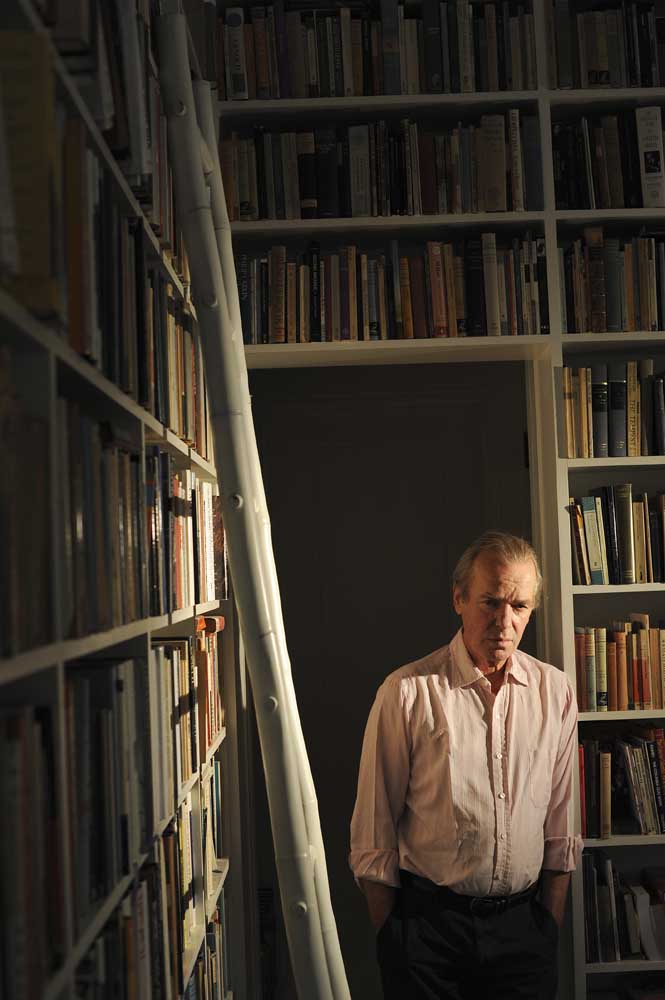Publishers shy away from novel
Published 12:00 am Sunday, September 21, 2014

- New York Times News Service file photoBritish writer Martin Amis’ latest novel, “The Zone of Interest,” a satire set in a concentration camp during the Second World War, is having trouble gaining traction in Europe, where his longtime French and German publishers have rejected it, causing a stir in the European press.
PARIS — In France, they say they’re puzzled by the humor. In Germany, they say it will be difficult to market. Martin Amis’ latest novel, “The Zone of Interest,” a satire set in a concentration camp during World War II, is having trouble gaining traction in Europe, where his longtime French and German publishers have rejected it.
The novel was published by Jonathan Cape in Britain in August to strong reviews and will be released in the United States by Knopf on Sept. 30. By turns a love story and a meditation on Nazi horrors written with self-consciously grotesque humor, “The Zone of Interest” takes place in the fictional Kat Zet I, the same fictional branch of Auschwitz where Amis set his 1991 novel, “Time’s Arrow.” The new book is certainly not the first work of fiction to treat the Holocaust with dark humor. But in Europe, where there has been particular sensitivity recently to a rise in anti-Semitic incidents, publishers this time seem squeamish.
In a telephone interview, Amis, whose books routinely come out in France and Germany, said he was “surprised and disappointed” by the publishers’ reactions. “But you never quite know what motivates them.”
In France, the storied house Gallimard declined to publish the novel because “it wasn’t very convincing,” said Marie-Pierre Gracedieu, Amis’ editor there. “It was for literary reasons.”
Yet many found the decision puzzling. Writing in Le Monde, the journalist Nicholas Weill noted that Gallimard hadn’t had the same qualms about publishing Jonathan Littell’s first novel, the Goncourt Prize-winning “The Kindly Ones,” in 2006, although it is told from the largely sympathetic perspective of an SS officer.
In France, “The Zone of Interest” was picked up by a smaller house, Calmann-Lévy, part of the Hachette group, which plans to publish it next fall.
“It’s an eminently literary object with a remarkable style, a very sustained level of language and a very correct tone,” said Florence Sultan, Calmann-Lévy’s director general.
Amis’ literary agent, Andrew Wylie, said his agency expected to find a new German publisher for the book soon. He said the novel has been sold in other parts of Europe, as well as in Canada and Brazil.
Amis said his German publisher, Carl Hanser Verlag, had told him that there were “inconsistencies in the plot” and that it had found the main character, Golo Thomsen, an SS officer, too sympathetic to the Nazi cause.
“In fact, a careful reading of the book will show he’s never a servant of the regime, that he was always at least trying to frustrate various policies, and halfway through, he becomes an active saboteur,” Amis said.
Piero Salabè, Amis’ editor at Carl Hanser Verlag, said the publisher had turned down the book for marketing as well as literary reasons.
“Our decision was based on the book’s contents as well as on economic considerations,” Salabè said.
He added that the decision had “nothing to do with the Holocaust being a sensitive issue in Germany.”
Amis “is a major literary figure, but unfortunately not in Germany, so we could not hope to make a best-seller with his new book,” Salabè wrote in an earlier email.
He noted that Amis’ 2010 novel, “The Pregnant Widow,” was “widely (though critically) reviewed, but sold modestly,” and that the house had also rejected Amis’ 2008 novel, “The Second Plane,” which was about the Sept. 11 hijackers.
Salabè said “The Zone of Interest” was not “frivolous,” as an interviewer in the newspaper The Frankfurter Allgemeine Zeitung had described it in a recent interview with Amis. Nor, he said, did the book chart dangerous new ground in Germany.
Still, Carl Hanser Verlag’s rejection of the book has caused something of a stir in Germany. The newspaper Die Welt said it was “ridiculous” that the publisher found the book’s literary merits lacking.
“If there is a scandal about ‘The Zone of Interest,’ it’s the fact that a German publisher thinks it has to withhold the work of one of the most important British contemporary authors from German readers,” the paper wrote.
Wylie said he did not think business decisions were ultimately the issue.
“I believe that it’s about lack of understanding of the book on the part of both the German and the French publishers,” he said.






